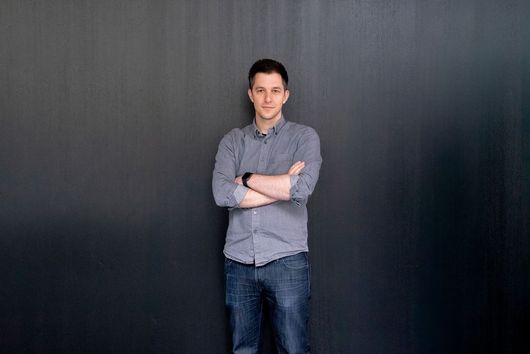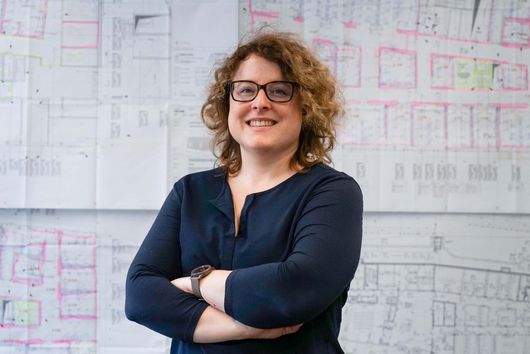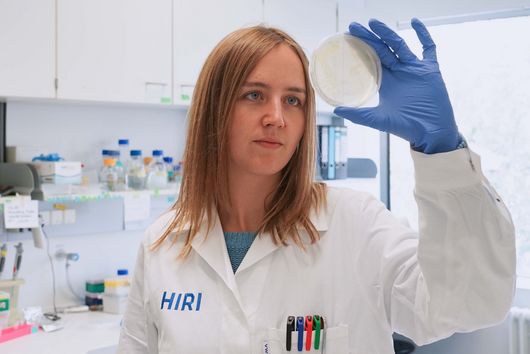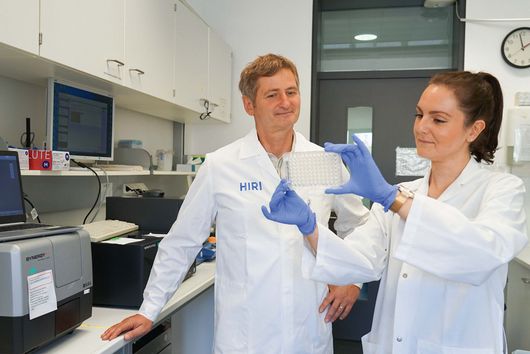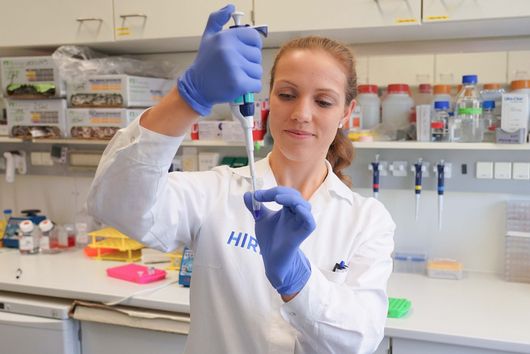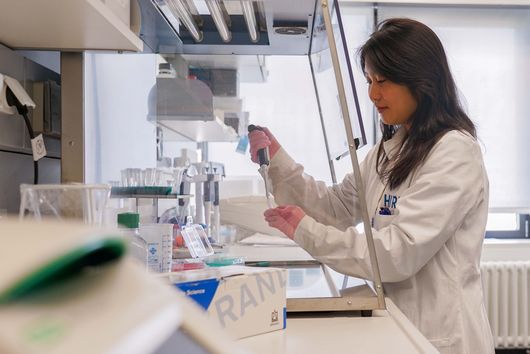
Eerie Experience with Happy Ending
Brazilian-born Taís Franco de Carvalho started in HIRI’s graduate training program, “RNA & Infection” this year. Her journey to Würzburg? A trip with obstacles.
Moving across borders for science can be a challenge, particularly when the world faces its own difficulties. In this interview, HIRI PhD student Taís Franco de Carvalho talks about her early passion for research, moving to a foreign continent, and the adventure of living in Germany.
A participant in the graduate program, she is working in the Westermann lab to conduct her PhD studies. When we met her, she was sure that moving to Würzburg had been a great decision – despite the obstacles in her way.
Where do you come from?
I come from a small town called Pinheiral of the Rio de Janeiro state in Brazil. For Brazilian standards, it is very small, with about 25,000 inhabitants. However, it was a peaceful and nice place to grow up.
What do you miss most about home?
I miss Panqueca most, my dog. I can video call my friends and family and get food items from home but there is no way to play with her remotely.
Due to the Covid pandemic, your move to Würzburg has turned out rather difficult. What happened on your way to Germany?
I planned to fly here three days after Brazil became a new variant risk country. Therefore, I had to reroute my flight through Chile where I was quarantined. While there, I was tested multiple times, and it was this eerie experience with empty airports and flights. However, HIRI made the process easier by providing me with ample support during all of it.
Once I had arrived in Germany, I didn't know how difficult it would be with my broken German. However, the language hasn`t been as much of an obstacle because everything work-related is in English, and people, in general, have either been fluent in English or accommodating to my gesturing and broken German. I am working on my German though as I feel this is fundamental to experience the culture thoroughly.
How do you like living in Würzburg so far?
I feel like I made a great decision, the city is lovely and has amiable weather. I like that it is not too big or crowded. There are plenty of places to go hiking in nature close by and I enjoy biking in the many cycle lanes. I have also enjoyed many options of restaurants from different countries and movie theaters that screen English films.
“I remember as a kid watching Jurassic Park’s explanation on DNA and being captivated.”
Did you always want to do research?
Yes, I was always curious and excited about science and its possibilities. I remember as a kid watching Jurassic Park’s explanation on DNA and being captivated.
The possibility of having an idea, testing, and applying it as a solution to a real-life problem is what drove me into the area.
And why HIRI? How did you come across our graduate training program, “RNA & Infection”?
By looking online for PhD positions where I would work on the overlap between genetics and infection. HIRI is a center of excellence that offers a unique experience: rotating in three groups before deciding where to develop your project. That gave me a better sense of what the whole Institute is researching. I could also learn about different techniques and areas and make an informed decision as to where I would fit better.
What are you currently working on?
I am working on developing antisense oligonucleotides targeting the commensal species of our gut microbiota, Bacteroides thetaiotaomicron. We want to control its metabolism and recruit its help in fighting off infections.
What are your plans for the future?
I expect to continue working in science, developing myself as a researcher, and hopefully someday have a positive impact in the fight against infectious diseases.






